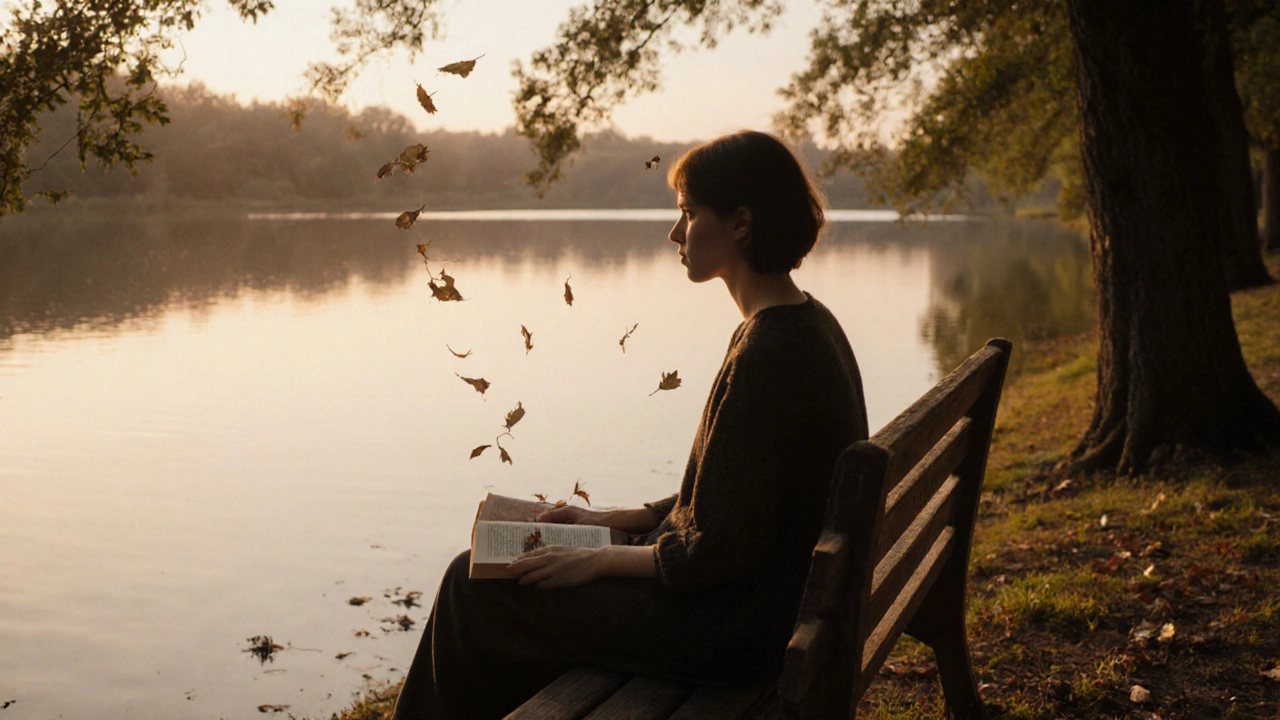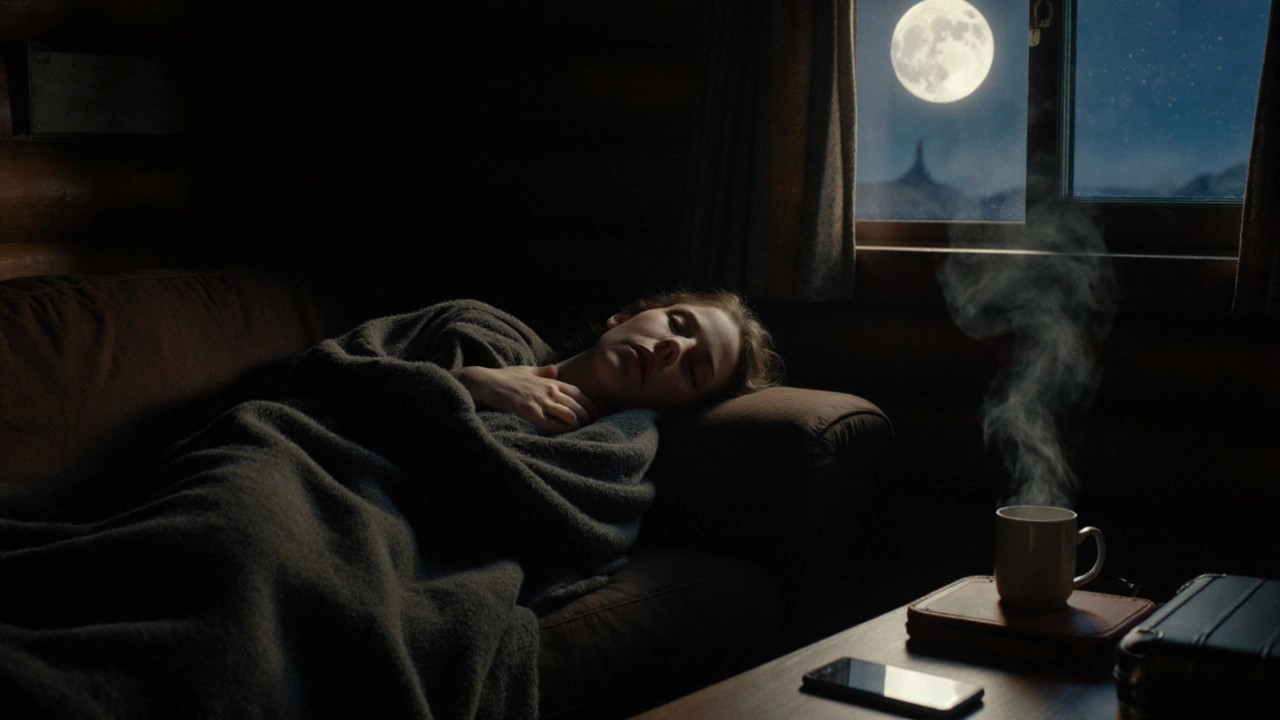What Is the Vacation Syndrome? Why Your Weekend Getaway Leaves You More Tired Than Work
 Oct, 29 2025
Oct, 29 2025
Vacation Recovery Calculator
How Your Trip Affects Recovery
Enter your getaway details to see if you're risking vacation syndrome.
Your Recovery Report
Enter your trip details to see recovery predictions...
You planned the perfect weekend getaway. Booked the cozy cabin, packed your favorite snacks, and even left your phone on silent. But by Sunday night, you’re exhausted. Not from hiking or sightseeing - from the sheer effort of trying to relax. Welcome to vacation syndrome.
What Exactly Is Vacation Syndrome?
Vacation syndrome isn’t a medical diagnosis. It’s the strange, frustrating feeling that after a short trip - especially a weekend break - you come back more drained than when you left. Your body feels heavy. Your mind won’t shut off. You’re irritable, zoning out at your desk, or scrolling through vacation photos like they’re relics from another life.
This isn’t laziness. It’s your nervous system struggling to switch gears. Your brain was wired for survival: constant alertness, deadlines, notifications, traffic, meetings. Then suddenly, you’re told to unwind. But your body doesn’t know how to flip the switch. The transition from high-stress mode to "relaxation mode" creates a kind of neurological whiplash.
A 2023 study from the University of Bristol tracked 1,200 people who took weekend trips. Over 68% reported feeling more fatigued after returning than before leaving. The biggest factor? Trying to cram too much into two days.
Why Short Getaways Backfire
The problem isn’t the getaway itself - it’s how we treat it. We treat weekend trips like mini-vacations with a checklist: visit three attractions, take ten photos, eat at three restaurants, post on Instagram, and still be back at work Monday morning ready to crush it.
Here’s what usually happens:
- Friday after work: rush to the car, fight traffic, arrive at your rental at 9 p.m.
- Saturday: wake up early, hit the market, hike a trail, eat lunch, visit a museum, take a sunset photo, eat dinner at a crowded spot, return to the rental exhausted.
- Sunday: pack, clean up, drive back, arrive home at 7 p.m., unpack, do laundry, shower, collapse.
You didn’t rest. You just moved your stress to a new location.
Real recovery needs time - not just physical distance. Your parasympathetic nervous system (the one that handles rest and digestion) needs at least 48 hours to fully activate after chronic stress. A 36-hour trip doesn’t give it a fighting chance.
The Hidden Cost of "Productive Relaxation"
We’ve been sold a lie: that relaxation must be productive. "I’ll use this weekend to explore!" "I’ll finally do that hike I’ve been talking about!" "I’ll get ahead on my reading!"
But relaxation isn’t a to-do list. It’s the absence of pressure. When you treat a getaway like a second job - one with better scenery - you’re not recharging. You’re just switching tasks.
Think of your brain like a phone battery. If you’re constantly running 15 apps in the background, unplugging for an hour won’t help. You need to shut everything down. No notifications. No planning. No photos. No checking the weather for Monday.
People who report the most restorative weekend breaks don’t do more. They do less. They sit. They stare out the window. They nap. They drink tea without scrolling. They let time pass without measuring it.

How to Fix Your Weekend Getaway
You don’t need to quit your job or take a month off. You just need to change how you approach short breaks. Here’s how:
- Leave the itinerary at home. Pick one thing you want to do - a walk, a café, a lake - and leave the rest open. If you feel like doing nothing, that’s the plan.
- Set a digital curfew. Turn off email and social media notifications after 7 p.m. Friday. Keep it off until Monday morning. Use airplane mode if you have to.
- Arrive early, leave late. Don’t fight Friday traffic. Leave Thursday after work if you can. Stretch your return to Sunday evening. You’ll get an extra 12 hours of calm.
- Don’t plan meals. Let yourself wander into a random diner. Order what looks good. Eat slowly. No reviews. No comparisons.
- Embrace boredom. If you feel restless, that’s your brain adjusting. Sit with it. Don’t grab your phone. Watch the clouds. Listen to the wind. Let your mind wander.
One woman in the Bristol study, a teacher named Elena, tried this. She drove two hours to a quiet lake, sat on a bench with a book she never opened, and just listened to the water for three hours. She came back and said, "I didn’t do anything. But I finally felt like I could breathe again."
Why Your Body Doesn’t Trust the Break
Your body remembers. It remembers the 3 a.m. deadlines. The emails at midnight. The meetings that ran late. The guilt you felt when you didn’t answer a message fast enough.
Even when you’re in a quiet cabin, your brain is still waiting for the other shoe to drop. "What if my boss needs me? What if something breaks? What if I fall behind?"
This is called anticipatory stress. It’s why people on vacation still check their phones. It’s why you feel guilty lying down. Your nervous system doesn’t believe you’re safe yet.
The cure? Consistency. If you make your weekends consistently low-pressure, your body will start to trust them. One quiet weekend. Then another. Then your brain begins to relax on its own.

What Real Recovery Looks Like
Real recovery doesn’t come from a beach or a mountain view. It comes from silence. From not having to perform. From letting your shoulders drop without thinking about it.
People who recover best from weekend getaways aren’t the ones who did the most. They’re the ones who did the least - and didn’t feel guilty about it.
Imagine this: Sunday afternoon. You’re on a porch. No phone. No agenda. Just the sound of leaves. You’re not thinking about Monday. You’re not even thinking about what you’ll eat for dinner. You’re just… there.
That’s not laziness. That’s healing.
Next Time You Plan a Weekend Break
Ask yourself: Am I trying to escape - or to rest?
If you’re trying to escape, you’ll pack your trip with noise. If you’re trying to rest, you’ll let it be quiet.
Vacation syndrome isn’t about the trip. It’s about the mindset. You don’t need a longer vacation. You need a different kind of break.
Try this: next weekend, do nothing. Not because you have to. But because you want to. See what happens when you stop trying to fix yourself - and just let yourself be.
Is vacation syndrome the same as burnout?
No. Burnout is a long-term state of emotional, mental, and physical exhaustion caused by prolonged stress. Vacation syndrome is a short-term reaction to the pressure of trying to relax after chronic stress. You can feel vacation syndrome after one weekend and still not be burned out. But if it keeps happening, it can contribute to burnout over time.
Why do I feel worse after a beach weekend?
Beaches are often crowded, noisy, and full of expectations - "I need to tan," "I need to swim," "I need to take the perfect photo." That’s not rest. It’s performance. If you’re stressed about being seen relaxing, you’re not relaxing. Try a quiet, empty stretch of shoreline instead - or skip the beach entirely.
Should I skip weekend getaways if they make me tired?
No. But change how you do them. The issue isn’t the getaway - it’s the pressure to make it productive. Try a "do nothing" weekend. Stay home. Watch a movie. Walk around the block. Read a book with no goal. You’ll be surprised how much better you feel.
Can I fix vacation syndrome without leaving home?
Absolutely. You don’t need to travel to rest. Many people feel better after a staycation where they turn off notifications, wear comfy clothes all day, eat simple meals, and spend time in silence. The key is removing pressure - not distance.
How long does it take to recover from vacation syndrome?
Usually 1-2 days. But if you keep rushing through weekends, your body never fully resets. The real fix isn’t a single trip - it’s building a habit of low-pressure downtime. After three quiet weekends, most people notice their body starts to relax faster.
